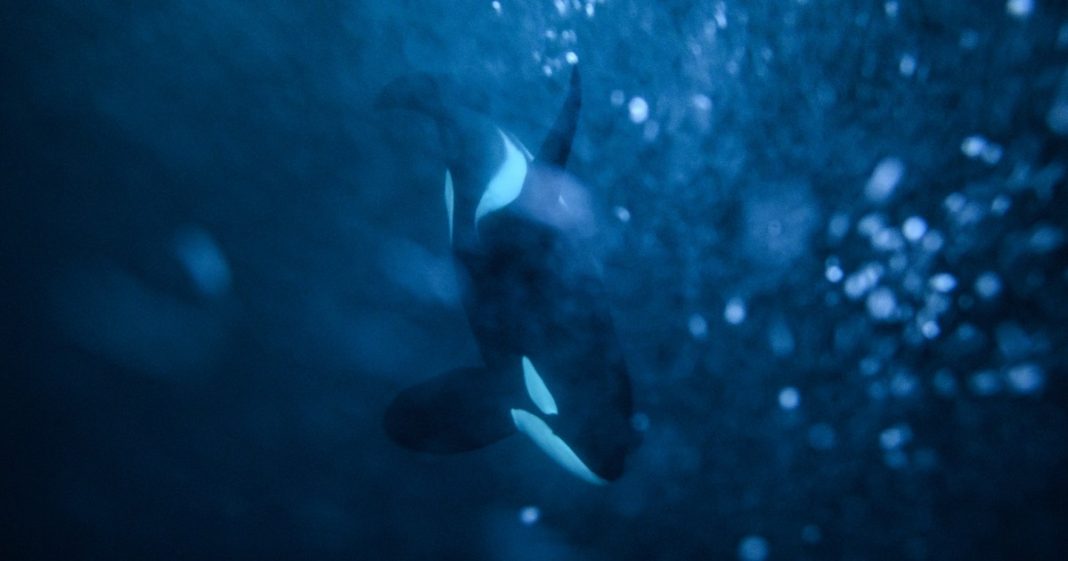For decades, the great white shark reigned supreme in our collective imagination as the undisputed terror of the oceans. Its sheer size, powerful jaws, and predatory reputation made it seem invincible. But it turns out, there’s a new apex predator in town, or rather, an old one whose dietary habits are far more shockingly specific than we ever imagined. Forget everything you thought you knew about marine food chains, because recent footage has revealed something truly incredible: orcas are hunting great white sharks, and not just hunting them, but expertly extracting and consuming their livers. And yes, it’s all on video.
The Calculated Hunt: Orcas’ Unrivaled Strategy
The footage, captured off the coast of South Africa, isn’t just a fleeting glimpse; it’s a detailed, chilling account of highly coordinated predation. We’re talking about multiple orcas working together, employing sophisticated strategies that put even the most experienced human hunters to shame. They don’t just randomly attack; they pursue, isolate, and incapacitate these massive sharks with surgical precision. One particular tactic involves flipping the great white upside down, inducing a state known as tonic immobility, which essentially paralyzes the shark. This allows the orcas to access their target with ease.
It’s a stark reminder of the immense intelligence and power of killer whales. “It’s like watching a highly skilled military operation unfold in the wild,” remarked marine biologist Dr. Alistair Finch, “They understand the physiology of their prey in a way that is utterly astounding, and they exploit it mercilessly.” This isn’t just hunting; it’s a display of unparalleled predatory mastery.
The Liver: A Taste for Nutrient Gold
But why the liver? Of all the parts of a great white shark, why zero in on this particular organ? The answer lies in its nutritional density. A great white shark’s liver is enormous, often accounting for a significant portion of its body weight. It’s packed with lipids, rich oils, and energy-dense compounds – essentially, a superfood for an apex predator like an orca. It provides a massive caloric and nutrient boost, essential for sustaining their large bodies and high energy demands. This selective consumption isn’t random; it’s an energy-efficient hunting strategy, ensuring maximum return on their predatory investment.
This isn’t an isolated incident either. While the video evidence is recent and groundbreaking, scientists have long suspected this behavior based on shark carcasses found washed ashore, bearing tell-tale signs of orca predation and missing only their livers. The video simply confirmed what was previously a hypothesis, offering undeniable proof of this extraordinary dietary preference.
Reshaping Our Understanding of Ocean Dynamics
This incredible footage forces us to rethink the established pecking order of the ocean. For so long, the great white shark was seen as the ultimate apex predator, with nothing truly threatening its reign. Now, we see that orcas, often misunderstood and sometimes underestimated, possess a level of predatory dominance that places them firmly at the top of the marine food web, even above the feared great white. This isn’t just a sensational discovery; it has significant ecological implications.
The targeted removal of great white sharks, particularly by skilled orca pods, could potentially influence shark populations and ripple through local ecosystems. It highlights the complex, dynamic, and often brutal realities of nature, reminding us that even the most formidable creatures have their own predators. The ocean’s true rulers might just be those black and white giants we once thought of as gentle “killer whales,” proving that in the wild, appearances can be deceiving, and power dynamics are always in flux.
The ocean continues to surprise and awe us, constantly revealing new facets of its intricate life. The revelation of orcas systematically hunting great white sharks for their livers, captured in undeniable footage, is a powerful testament to the intelligence, adaptability, and sheer predatory might of these magnificent marine mammals. It’s a story that’s redefining our understanding of underwater power dynamics and solidifying the orca’s place at the absolute apex of the marine food chain.




